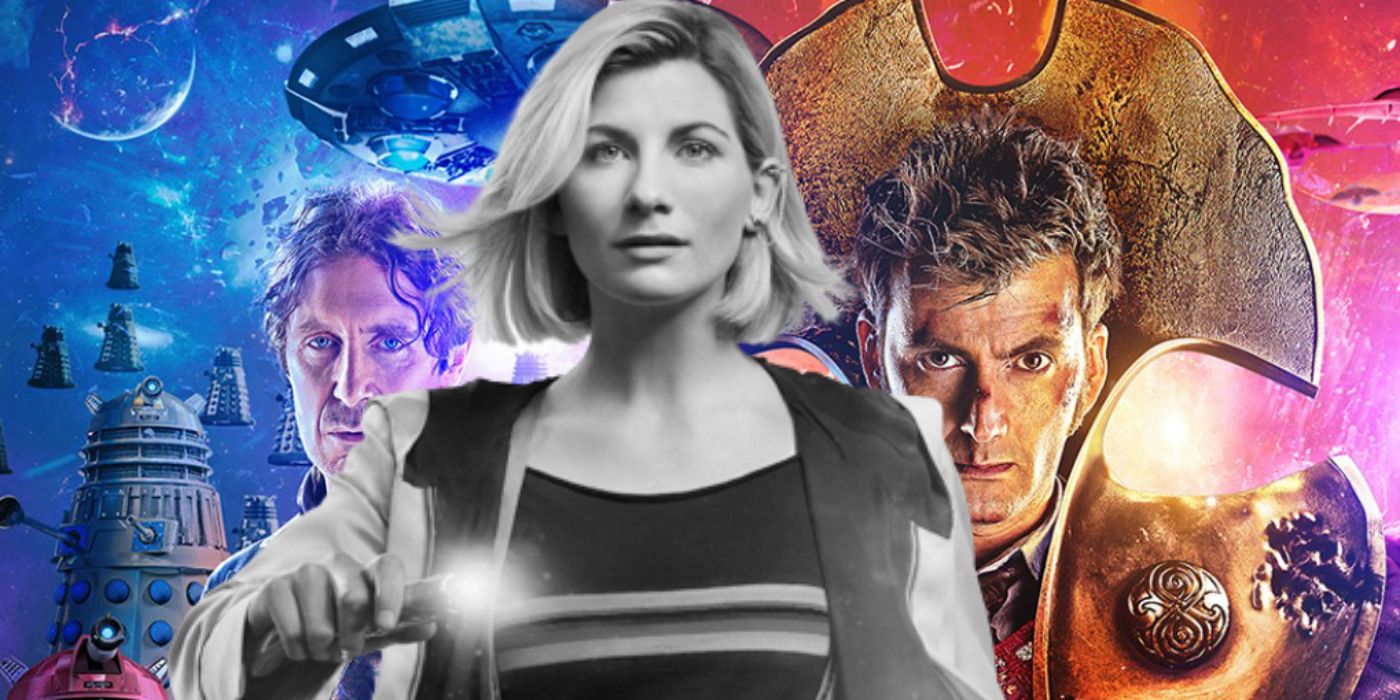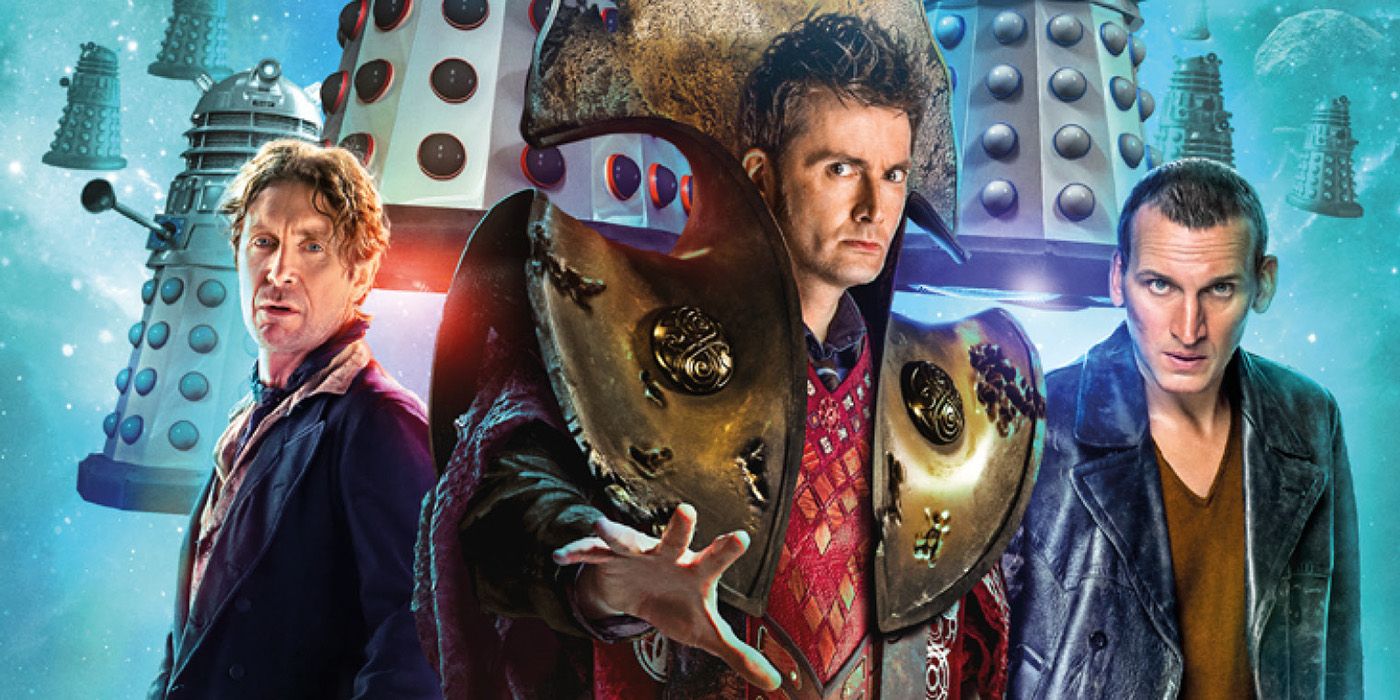"Time Lord Victorious" is the biggest transmedia event in the history of Doctor Who - and here's why the TV show isn't part of it. Transmedia is becoming a bigger part of modern entertainment than ever before, but it's hardly new to Doctor Who. The first tie-in books were published as early as 1965, and by 1976 fans could tune in to radio plays and purchase LPs. There was no actual collaboration between the BBC and these different initiatives, but frankly that's not a problem; Doctor Who has never been especially concerned with ideas like continuity and canonicity. When Doctor Who was cancelled in 1989, these transmedia projects became more important than ever before, keeping Doctor Who alive and drawing in a range of writers who were destined to pen episodes of the relaunched TV series.
But now Doctor Who has launched its boldest transmedia initiative to date, "Time Lord Victorious," a story that will take multiple incarnations of the Doctor back to the Dark Times when the universe was young. It incorporates everything from Big Finish audio-books to tie-in novels, from comics to escape rooms. It feels like the biggest story ever told in the history of Doctor Who, and yet there's one striking absence: The TV series itself is not part of "Time Lord Victorious".
Doctor Who Theory: Tennant's Time Lord Victorious Created His Greatest Enemy
This is because the BBC, who produce the Doctor Who TV series, are a public service broadcaster. As such, they operate under significant constraints when it comes to transmedia. As former showrunner Russell T. Davies explained in the May 2005 issue of Doctor Who Magazine:
"Doctor Who is produced by a Public Service Broadcaster and it is paid for by you, the license payer. As a consequence of this status, the BBC has to be very careful with its merchandising. We are happy for you to enjoy the Doctor off-screen and read the novels, but we must never make that purchase necessary. If you had to buy a BBC novel in order to understand the plot as transmitted on BBC1, then we would be breaking the BBC's guidelines."
There's nothing to stop the BBC TV series tying in to things that are free, explaining why they've been able to release short stories and animations online or via free mobile phone apps. But to understand "Time Lord Victorious" in all its glory, you really do have to spend a bit of money, buying everything from novels to audio-books. As such, this is the kind of story the Doctor Who TV show sadly can't get involved in. As Neil Perryman of the University of Sunderland explained in an article called Doctor Who and the Convergence of Media, "satellite formats can complement the parent programme [but] they can never be integrated into the over-arching narrative to such an extent that it impacts directly upon it. In short, these platforms must stand alone." [via Sage Journals]
And so, sadly, "Time Lord Victorious" - the most exciting event in Doctor Who this year - can never have any direct impact at all upon the BBC TV show. Current showrunner Chris Chibnall can support what it being done by licensed companies like Big Finish, but he is restricted when it comes to weaving their stories into his own narrative. This restriction is there simply because of the BBC Charter, and it is very difficult indeed for Doctor Who to navigate around it.


